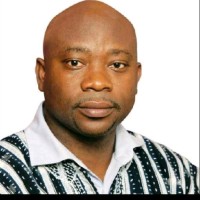Bawumia: Focusing on Party Loyalty Over Competence Erodes Institutional Strength

Dr. Mahamudu Bawumia, the former Vice President of Ghana, has raised serious concerns regarding the weakening and vulnerability of state institutions across many African nations. Speaking at a conference in Nigeria on January 28, 2025, Dr. Bawumia highlighted how crucial these institutions are for the development and prosperity of countries, but expressed alarm that they are being increasingly undermined due to the prioritization of partisan, ethnic, and personal interests over competence.
Dr. Bawumia believes that the decline of state institutions poses a significant threat to the future of African countries. These institutions, he pointed out, are the backbone of any nation’s growth, determining its progress, stability, and democratic integrity. However, the increasing tendency to appoint individuals based on party loyalty, ethnic affiliation, or personal connections rather than on merit and professionalism is leading to the weakening of these vital structures. He stressed that when such practices dominate appointments to key institutions, it transforms them into empty shells with little effectiveness or meaningful contribution to national development.
At the core of Dr. Bawumia’s argument is the fact that this trend, if left unchecked, could ultimately erode the democratic fabric of these nations. He noted that when leadership positions are filled not by those best equipped to lead, but by individuals chosen for their political affiliations, it opens the door for autocratic tendencies to creep in. This scenario, he warned, paves the way for weak governance and mismanagement, where the interests of a select few overshadow the needs of the broader public.
In his address, Dr. Bawumia also pointed to the disturbing rise of individuals who deliberately undermine the authority and credibility of key state institutions. These efforts often originate from well-educated and professional individuals who, despite their expertise, are motivated by political agendas. Such individuals attempt to discredit institutions when they uphold the law or make decisions that may not align with the interests of specific groups or individuals. According to Dr. Bawumia, this intentional distortion of the role and function of these institutions fosters public disillusionment, contributing to a breakdown in trust between the government and the public.
He specifically addressed how some individuals, despite holding positions of authority and possessing technical expertise, have chosen to undermine the work of independent institutions simply because these institutions adhere to legal standards and principles, rather than aligning with their personal or partisan interests. Dr. Bawumia expressed concern that these attacks on state institutions are often presented as expert opinions, despite being rooted in political agendas, leading to the weakening of these bodies and further damaging their reputation.
“What we are witnessing,” he said, “is a dangerous trend where professional and well-qualified individuals distort the work of these institutions for political gain, all the while disguising their political motives as technical expertise.” Dr. Bawumia emphasized that such actions not only diminish the effectiveness of these institutions but also sow seeds of division and mistrust in society. This, he argued, ultimately weakens the democratic process, as the public begins to question the legitimacy and integrity of the very institutions meant to safeguard their rights and interests.
The former Vice President warned that the growing vulnerability of state institutions presents a serious challenge to democracy. He emphasized that in order for African nations to thrive, leaders must resist the temptation to appoint individuals based on political affiliation or ethnicity, and instead focus on ensuring that institutions are led by individuals with the requisite expertise, integrity, and vision. He argued that competence should be the primary criterion for appointments, not loyalty to a political party or group.
In closing, Dr. Bawumia made a passionate plea for greater accountability and transparency in the management of state institutions. He urged leaders across the continent to place the welfare of the public above personal or partisan interests, in order to ensure that institutions remain strong, effective, and accountable. He stressed that if state institutions are to fulfill their essential roles in fostering growth, development, and democracy, they must be protected from political manipulation and empowered to act independently.
Dr. Bawumia’s remarks were a call to action for leaders and citizens alike to safeguard the integrity of state institutions, which are essential to the future prosperity and stability of African nations. By placing competence and merit above political considerations, African countries can build stronger, more resilient institutions capable of driving lasting progress and ensuring a brighter future for all citizens.








